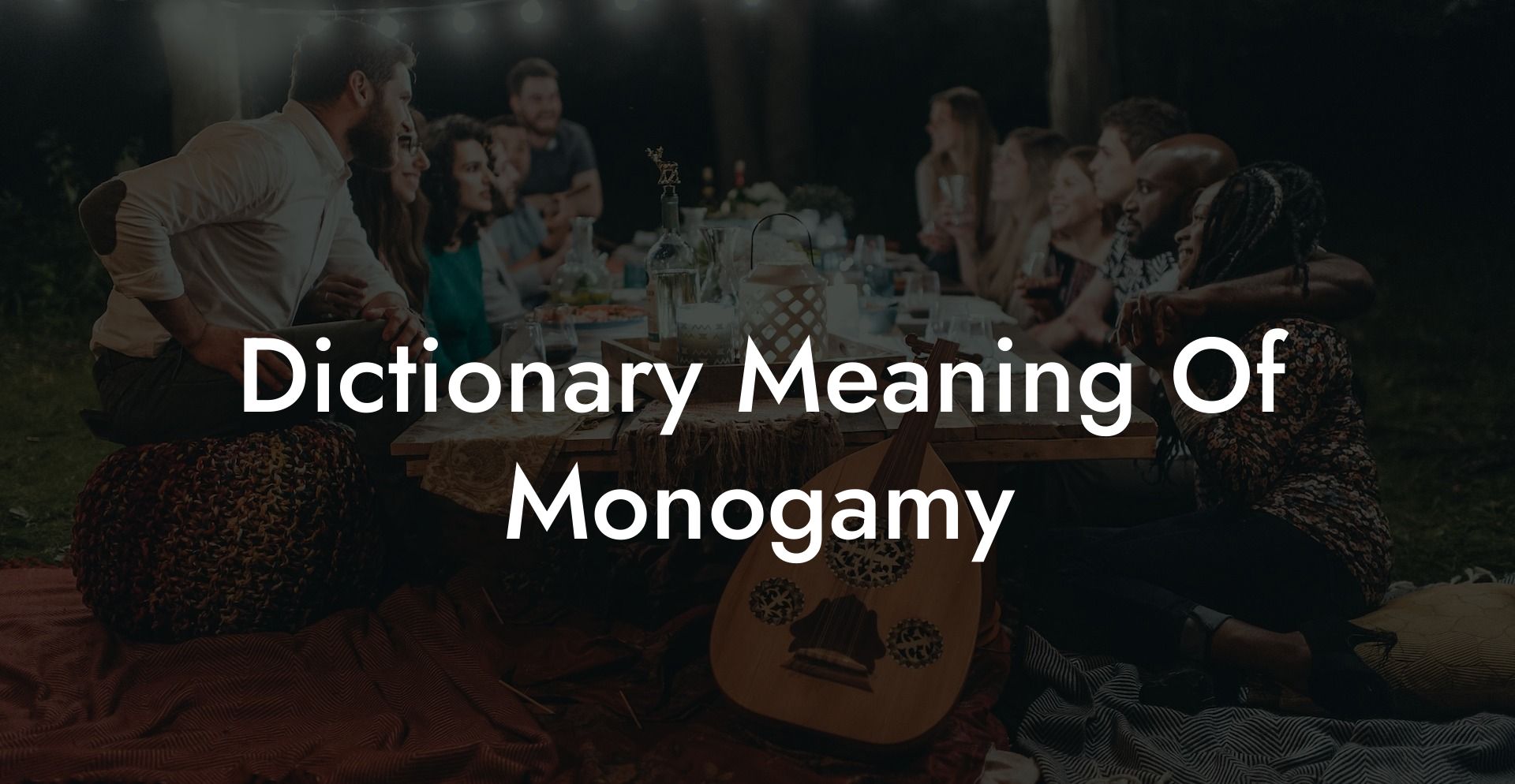When it comes to relationships, the concept of monogamy often takes center stage. Television shows, movies, and popular culture paint a picture of the ideal relationship as one where two individuals commit to each other and only each other, for better or for worse. But is this the full story behind monogamy? We're here to delve into the dictionary meaning of monogamy, how it relates to human relationships, its variations and challenges, as well as the alternatives that some couples choose to explore. Join us on this journey, and don't forget to share your thoughts and experiences with the Monogamy Experiment community!
Dictionary Meaning Of Monogamy Table of Contents
The Definition of Monogamy
At its core, monogamy refers to the practice of having only one sexual or romantic partner at a time. The term has its roots in the Greek language – "monos," meaning "one" or "single," and "gamos," meaning "marriage" or "union." However, in modern times, the concept of monogamy has evolved to encompass long-term, committed relationships that may not necessarily involve marriage.
In the animal kingdom, monogamy refers to the practice where a male and a female form a pair bond and reproduce exclusively with each other, often for life. While this may seem ideal for some, it's important to note that only a small percentage of the animal kingdom practice true monogamy. This serves as an interesting point of comparison for humans, as our relationship models don't always fit neatly into the dictionary definition of monogamy.
Monogamy in Human Relationships
Society often touts monogamy as the "norm" in human relationships, and indeed, many individuals choose monogamous relationships as their preferred relationship model. These relationships offer numerous benefits, such as emotional and physical security, stability, and the opportunity to fully invest in building a life together.
However, it is essential to note that monogamous relationships can also be fraught with challenges. Many couples struggle with the balance between maintaining personal and individual growth while nurturing their relationship and partnership. Additionally, trust can prove a challenging hurdle for some, as the exclusive nature of monogamy places the onus on both partners to maintain unwavering loyalty.
Variations and Challenges
There is some debate regarding whether humans are biologically predisposed to monogamous relationships or if monogamy is simply a societal construct. Some argue that the prevalence of infidelity in relationships is testament to the fact that monogamy, as nature intended, is a challenging model to sustain.
Serial monogamy, where individuals enter into consecutive monogamous relationships, has emerged as a possible alternative. This model allows for personal growth and exploration while maintaining commitment to one partner at a time. However, it is essential that both parties in the partnership fully understand and agree upon the nature of this relationship model.
Exploring Alternatives: Non-Monogamy and Polyamory
For those who feel restricted by the traditional monogamous relationship model, non-monogamous practices such as open relationships and polyamory have gained traction as viable alternatives. In these relationships, partners agree upon certain levels of openness to cultivate physical, emotional, or romantic connections outside of their primary partnership. The key to the success of non-monogamous relationships is open communication and a joint embrace of the fluidity and flexibility that these models often demand.
The dictionary meaning of monogamy provides us with a solid starting point when exploring human relationships, but it's crucial to recognize that this definition merely scratches the surface. Monogamy and its variations, as well as non-monogamous alternatives, can offer a realm of relationship possibilities that cater to the diverse preferences and experiences of people all around the world.
As we continue to delve deeper into the world of relationships, we invite our readers to share their perspectives and experiences, and explore the countless other guides and articles on The Monogamy Experiment. Let's journey together in understanding and embracing the vast complexities and richness of human relationships.













